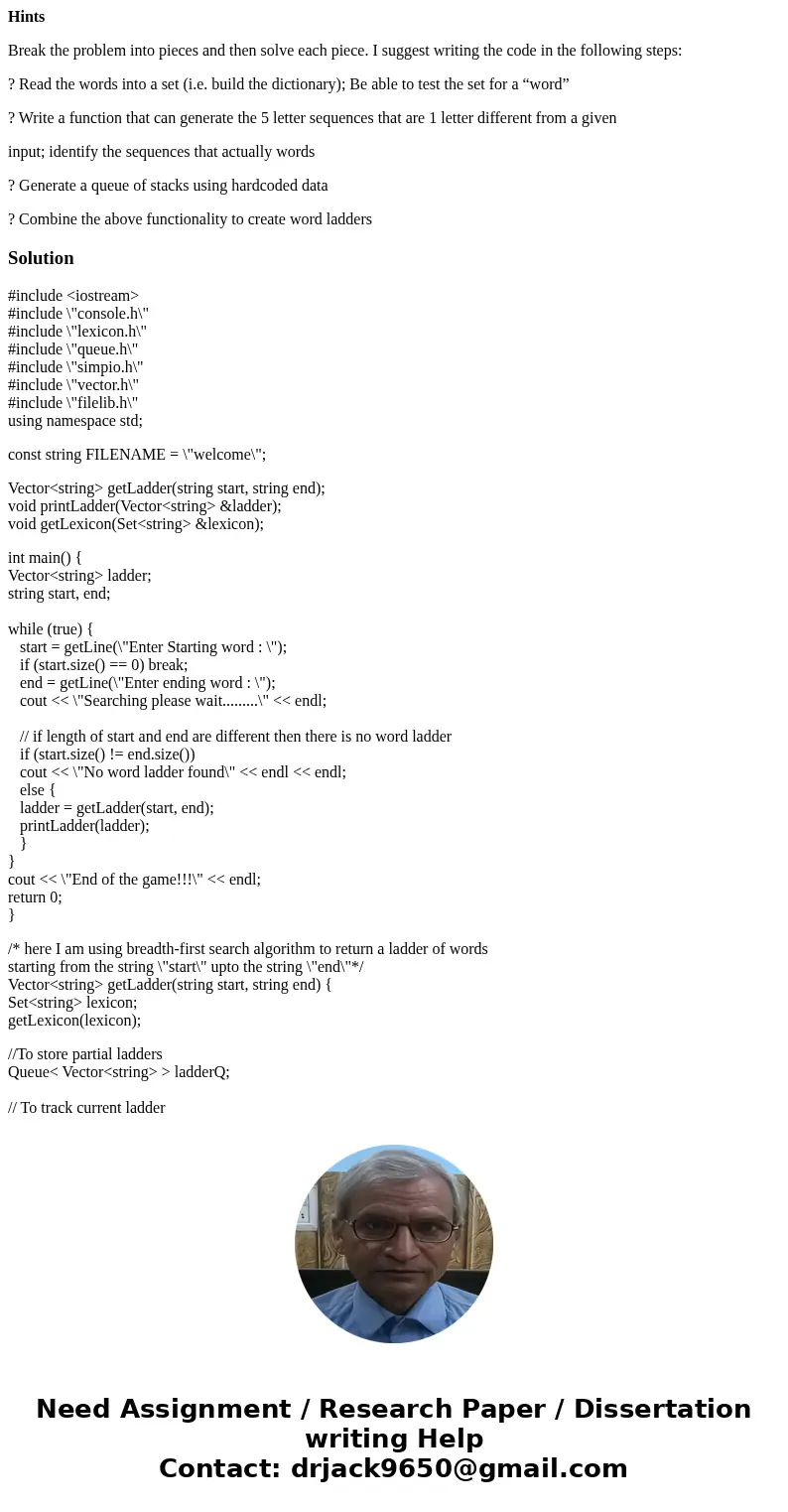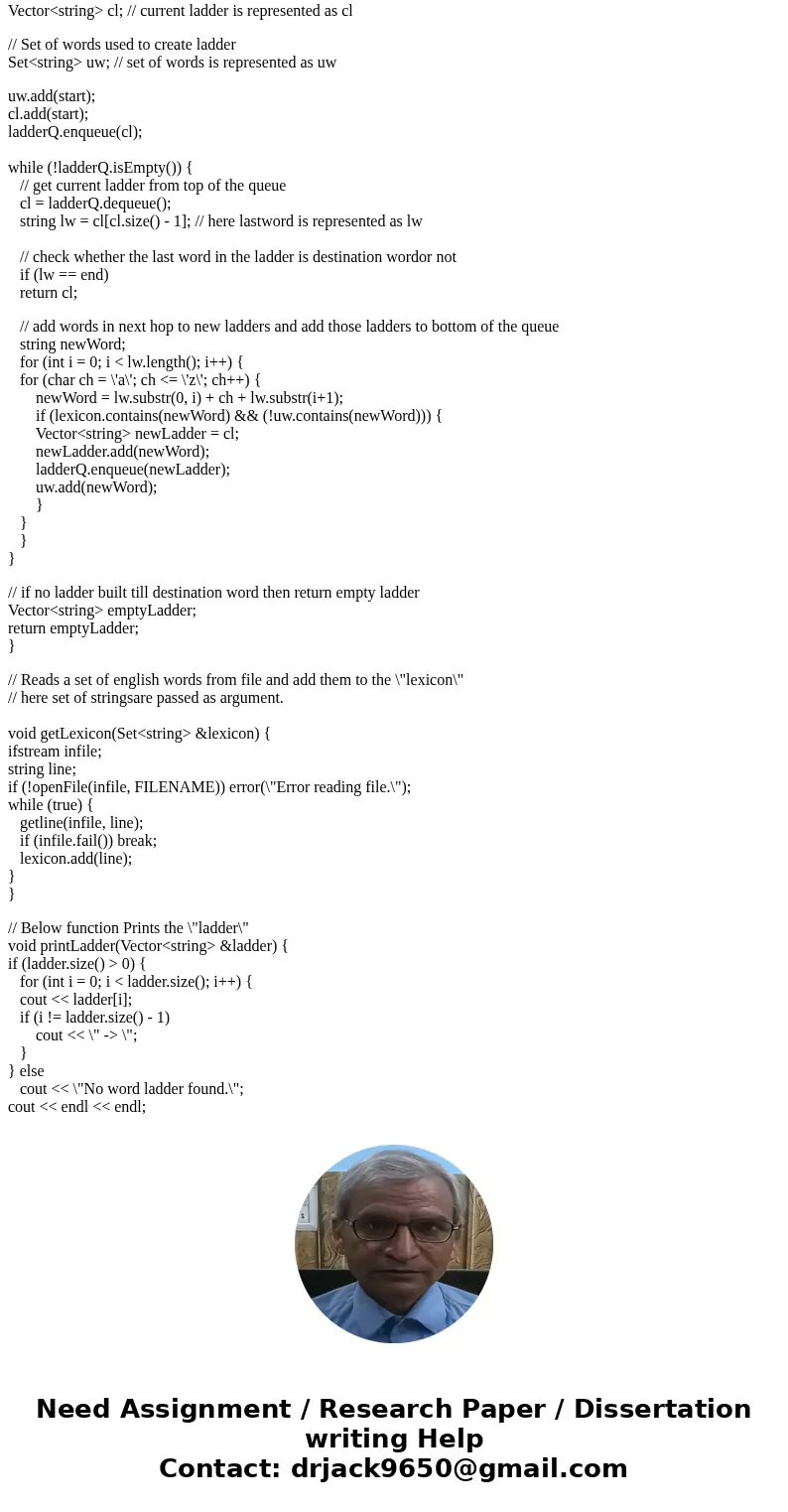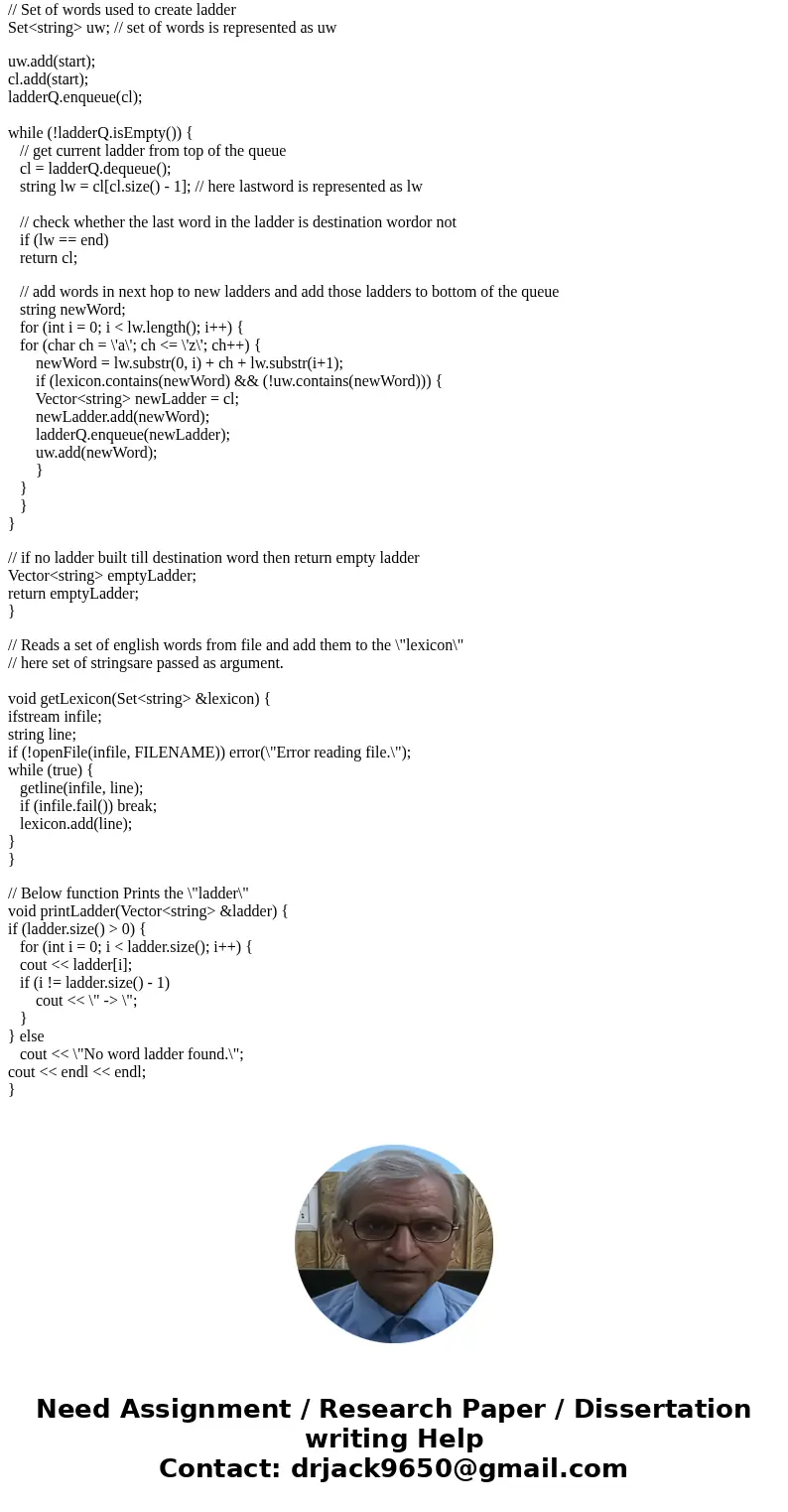Hints Break the problem into pieces and then solve each piec
Hints
Break the problem into pieces and then solve each piece. I suggest writing the code in the following steps:
? Read the words into a set (i.e. build the dictionary); Be able to test the set for a “word”
? Write a function that can generate the 5 letter sequences that are 1 letter different from a given
input; identify the sequences that actually words
? Generate a queue of stacks using hardcoded data
? Combine the above functionality to create word ladders
Solution
#include <iostream>
#include \"console.h\"
#include \"lexicon.h\"
#include \"queue.h\"
#include \"simpio.h\"
#include \"vector.h\"
#include \"filelib.h\"
using namespace std;
const string FILENAME = \"welcome\";
Vector<string> getLadder(string start, string end);
void printLadder(Vector<string> &ladder);
void getLexicon(Set<string> &lexicon);
int main() {
Vector<string> ladder;
string start, end;
while (true) {
start = getLine(\"Enter Starting word : \");
if (start.size() == 0) break;
end = getLine(\"Enter ending word : \");
cout << \"Searching please wait.........\" << endl;
// if length of start and end are different then there is no word ladder
if (start.size() != end.size())
cout << \"No word ladder found\" << endl << endl;
else {
ladder = getLadder(start, end);
printLadder(ladder);
}
}
cout << \"End of the game!!!\" << endl;
return 0;
}
/* here I am using breadth-first search algorithm to return a ladder of words
starting from the string \"start\" upto the string \"end\"*/
Vector<string> getLadder(string start, string end) {
Set<string> lexicon;
getLexicon(lexicon);
//To store partial ladders
Queue< Vector<string> > ladderQ;
// To track current ladder
Vector<string> cl; // current ladder is represented as cl
// Set of words used to create ladder
Set<string> uw; // set of words is represented as uw
uw.add(start);
cl.add(start);
ladderQ.enqueue(cl);
while (!ladderQ.isEmpty()) {
// get current ladder from top of the queue
cl = ladderQ.dequeue();
string lw = cl[cl.size() - 1]; // here lastword is represented as lw
// check whether the last word in the ladder is destination wordor not
if (lw == end)
return cl;
// add words in next hop to new ladders and add those ladders to bottom of the queue
string newWord;
for (int i = 0; i < lw.length(); i++) {
for (char ch = \'a\'; ch <= \'z\'; ch++) {
newWord = lw.substr(0, i) + ch + lw.substr(i+1);
if (lexicon.contains(newWord) && (!uw.contains(newWord))) {
Vector<string> newLadder = cl;
newLadder.add(newWord);
ladderQ.enqueue(newLadder);
uw.add(newWord);
}
}
}
}
// if no ladder built till destination word then return empty ladder
Vector<string> emptyLadder;
return emptyLadder;
}
// Reads a set of english words from file and add them to the \"lexicon\"
// here set of stringsare passed as argument.
void getLexicon(Set<string> &lexicon) {
ifstream infile;
string line;
if (!openFile(infile, FILENAME)) error(\"Error reading file.\");
while (true) {
getline(infile, line);
if (infile.fail()) break;
lexicon.add(line);
}
}
// Below function Prints the \"ladder\"
void printLadder(Vector<string> &ladder) {
if (ladder.size() > 0) {
for (int i = 0; i < ladder.size(); i++) {
cout << ladder[i];
if (i != ladder.size() - 1)
cout << \" -> \";
}
} else
cout << \"No word ladder found.\";
cout << endl << endl;
}



 Homework Sourse
Homework Sourse